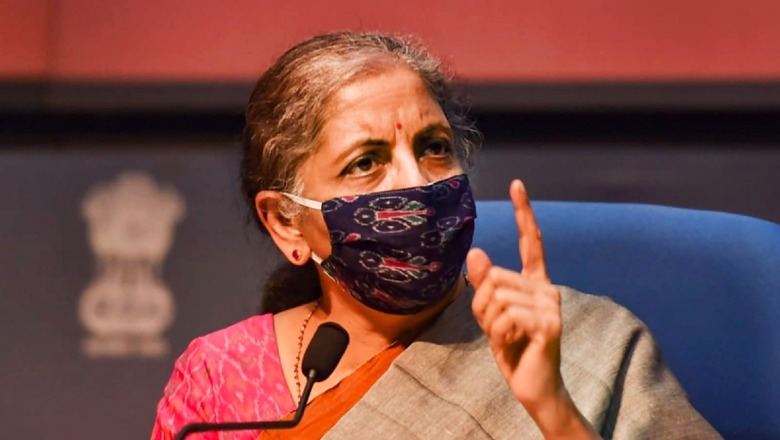
views
A single common Goods and Services Tax (GST), which came into being in July 2017, replaced several indirect taxes that were levied by the State and the Union Government such as VAT and excise duty, among others. The Government of India (GoI) also formed a GST Council to oversee the rules of the Goods and Services Tax. Over the years, the all-powerful GST Council has met to make recommendations on all matters concerning GST.
According to moneycontrol.com report, the next GST Council meeting is likely to be convened shortly after the ongoing monsoon session of the Parliament concludes, which probably means by the last week of August or in the first week of next September. Reports suggest that the meeting may exclusively focus on the discussions between GoI and the States on the specifics of extending the revenue shortfall compensation period beyond June 2022, as that’s when the five-year assured period comes to an end.
While the Union Government has in principle assented to prolong the compensation cess, the modalities and details are yet to be taken up. The council along with several state finance ministers, many of whom are from the opposition, are insistent that the assured compensation mechanism be continued for another five years.
When the GST came into being, States had agreed to join the new tax regime provided they were compensated for any revenue loss in the first five years, i.e. from July 1, 2017, to June 2022. However, in October 2020, the Council in principle had decided to extend the compensation beyond the original five years. Meanwhile, Union Finance Minister Nirmala Sitharaman, who heads the GST Council, had said after a Council meeting in June this year that there would be further deliberations on the matter.
The basic issue is that the States surmise the actual shortfall during the five years to June 2022 is much higher than estimated by the Centre at Rs 3.9 lakh crore or near there. By that account, it will take two-to-three years for the Rs 1.1 lakh crore already borrowed in continuous loans in FY21 and another about Rs 1.6 lakh crore to be borrowed in the ongoing 2021-22 financial year.
These loans are to be repaid through cess proceeds and these cesses on demerit goods are being used for compensating states for revenue shortfall against the guaranteed annual growth of 14 per cent. However, it is up to the GST Council to decide as to how to ensure that States are compensated by greater revenues.
Read all the Latest News, Breaking News and Coronavirus News here.




















Comments
0 comment